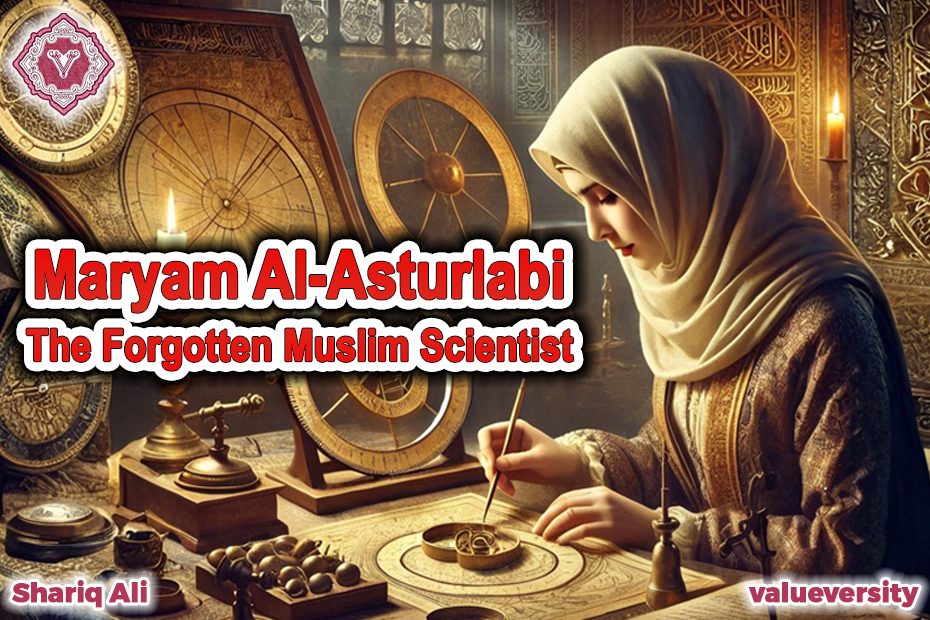Research & Edit
Shariq Ali
Valueversity
The pages of history are filled with extraordinary women whose contributions have faded into obscurity over time. Among them is the name of Maryam Al-Asturlabi. This 10th-century Syrian scientist and astronomer played a crucial role in the development and refinement of the astrolabe, a sophisticated instrument used for maritime navigation, timekeeping, and astronomical research in her era. Maryam significantly improved this device, earning recognition for her contributions to scientific advancements during the Islamic Golden Age.
Working under the patronage of Sayf al-Dawla, the ruler of Aleppo, Maryam mastered the field of astronomy and instrument-making—an area largely dominated by men at the time. Despite her remarkable achievements, historical records have seldom mentioned her, but recent years have seen a resurgence of interest in her legacy.
Maryam Al-Asturlabi’s contributions have even been acknowledged by NASA, which named an asteroid in her honor—a significant testament to the global recognition of her scientific heritage.
Her story is not just a chapter from the past; it serves as an inspiration for today’s women. Muslim women must carve their place in the fields of science, technology, engineering, and mathematics (STEM), just as Maryam Al-Asturlabi did centuries ago. Her life teaches us that if the sky was not the limit for Maryam Al-Asturlabi, then no boundary should be final for today’s women either.
